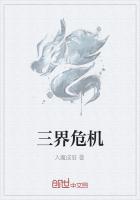Having returned to the George, Mr. Foker and his guest sate down to a handsome repast in the coffee-room; where Mr. Rincer brought in the first dish, and bowed as gravely as if he was waiting upon the Lord-Lieutenant of the county. Mr. Foker attacked the turtle and venison with as much gusto as he had shown the year before, when he used to make feasts off ginger-beer and smuggled polonies. Pen could not but respect his connoisseurship as he pronounced the champagne to be condemned gooseberry, and winked at the port with one eye. The latter he declared to be of the right sort; and told the waiters there was no way of humbugging him. All these attendants he knew by their Christian names, and showed a great interest in their families; and as the London coaches drove up, which in those early days used to set off from the George, Mr. Foker flung the coffee-room window open, and called the guards and coachmen by their Christian names, too, asking about their respective families, and imitating with great liveliness and accuracy the tooting of the horns as Jem the ostler whipped the horses' cloths off, and the carriages drove gaily away.
"A bottle of sherry, a bottle of sham, a bottle of port and a shass caffy, it ain't so bad, hay, Pen?" Foker said, and pronounced, after all these delicacies and a quantity of nuts and fruit had been dispatched, that it was time to "toddle." Pen sprang up with very bright eyes, and a flushed face; and they moved off towards the theatre, where they paid their money to the wheezy old lady slumbering in the money-taker's box. "Mrs. Dropsicum, Bingley's mother-in-law, great in Lady Macbeth," Foker said to his companion. Foker knew her, too.
They had almost their choice of places in the boxes of the theatre, which was no better filled than country theatres usually are in spite of the "universal burst of attraction and galvanic thrills of delight" advertised by Bingley in the play-bills. A score or so of people dotted the pit-benches, a few more kept a kicking and whistling in the galleries, and a dozen others, who came in with free admissions, were in the boxes where our young gentlemen sate. Lieutenants Rodgers and Podgers, and young Cornet Tidmus, of the Dragoons, occupied a private box. The performers acted to them, and these gentlemen seemed to hold conversations with the players when not engaged in the dialogue, and applauded them by name loudly.
Bingley the manager, who assumed all the chief tragic and comic parts except when he modestly retreated to make way for the London stars, who came down occasionally to Chatteris, was great in the character of the 'Stranger.' He was attired in the tight pantaloons and Hessian boots which the stage legend has given to that injured man, with a large cloak and beaver and a hearse feather in it drooping over his raddled old face, and only partially concealing his great buckled brown wig. He had the stage jewellery on too, of which he selected the largest and most shiny rings for himself, and allowed his little finger to quiver out of his cloak with a sham diamond ring covering the first joint of the finger and twiddling in the faces of the pit. Bingley made it a favour to the young men of his company to go on in light comedy parts with that ring. They flattered him by asking its history. The stage has its traditional jewels as the Crown and all great families have. This had belonged to George Frederick Cooke, who had had it from Mr. Quin, who may have bought it for a shilling. Bingley fancied the world was fascinated with its glitter.
He was reading out of the stage-book--that wonderful stage-book which is not bound like any other book in the world, but is rouged and tawdry like the hero or heroine who holds it; and who holds it as people never do hold books: and points with his finger to a passage, and wags his head ominously at the audience, and then lifts up eyes and finger to the ceiling professing to derive some intense consolation from the work between which and heaven there is a strong affinity. Anybody who has ever seen one of our great light comedians, X., in a chintz dressing-gown, such as nobody ever wore, and representing himself to the public as a young nobleman in his apartments, and whiling away the time with light literature until his friend Sir Harry shall arrive, or his father shall come down to breakfast--anybody, I say, who has seen the great X. over a sham book has indeed had a great pleasure and an abiding matter for thought.
Directly the Stranger saw the young men, he acted at them; eyeing them solemnly over his gilt volume as he lay on the stage-bank showing his hand, his ring, and his Hessians. He calculated the effect that every one of these ornaments would produce upon his victims: he was determined to fascinate them, for he knew they had paid their money; and he saw their families coming in from the country and filling the cane chairs in his boxes.
As he lay on the bank reading, his servant, Francis, made remarks upon his master.
"Again reading," said Francis, "thus it is, from morn to night. To him nature has no beauty--life no charm. For three years I have never seen him smile" (the gloom of Bingley's face was fearful to witness during these comments of the faithful domestic). "Nothing perts him. O, if he would but attach himself to any living thing, were it an animal--for something man must love."
[Enter Tobias (Goll) from the hut.] He cries, "O, how refreshing, after seven long weeks, to feel these warm sunbeams once again. Thanks, bounteous heaven, for the joy I taste!" He presses his cap between his hands, looks up and prays. The Stranger eyes him attentively.
Francis to the Stranger. "This old man's share of earthly happiness can be but little. Yet mark how grateful he is for his portion of it."
Bingley. "Because though old, he is but a child in the leading-string of hope." (He looks steadily at Foker, who, however, continues to suck the top of his stick in an unconcerned manner.)
Francis. "Hope is the nurse of life."
Bingley. "And her cradle--is the grave."
The Stranger uttered this with the moan of a bassoon in agony, and fixed his eyes on Pendennis so steadily, that the poor lad was quite put out of countenance. He thought the whole house must be looking at him; and cast his eyes down. As soon as ever he raised them Bingley's were at him again. All through the scene the manager played at him. When he was about to do a good action, and sent off Francis with his book, so that that domestic should not witness the deed of benevolence which he meditated, Bingley marked the page carefully, so that he might continue the perusal of the volume off the stage if he liked. But all was done in the direct face of Pendennis, whom the manager was bent upon subjugating. How relieved the lad was when the scene ended, and Foker, tapping with his cane, cried out "Bravo, Bingley!"
"Give him a hand, Pendennis; you know every chap likes a hand," Mr. Foker said; and the good-natured young gentleman, and Pendennis laughing, and the dragoons in the opposite box, began clapping hands to the best of their power.
A chamber in Wintersen Castle closed over Tobias's hut and the Stranger and his boots; and servants appeared bustling about with chairs and tables--"That's Hicks and Miss Thackthwaite," whispered Foker. "Pretty girl, ain't she, Pendennis? But stop--hurray--bravo! here's the Fotheringay."
The pit thrilled and thumped its umbrellas; a volley of applause was fired from the gallery: the Dragoon officers and Foker clapped their hands furiously: you would have thought the house was full, so loud were their plaudits. The red face and ragged whiskers of Mr. Costigan were seen peering from the side-scene. Pen's eyes opened wide and bright as Mrs. Haller entered with a downcast look, then rallying at the sound of the applause, swept the house with a grateful glance, and, folding her hands across her breast, sank down in a magnificent curtsey. More applause, more umbrellas; Pen this time, flaming with wine and enthusiasm, clapped hands and sang "bravo" louder than all. Mrs. Haller saw him, and everybody else, and old Mr. Bows, the little first fiddler of the orchestra (which was this night increased by a detachment of the band of the Dragoons, by the kind permission of Colonel Swallowtail), looked up from the desk where he was perched, with his crutch beside him, and smiled at the enthusiasm of the lad.
Those who have only seen Miss Fotheringay in later days, since her marriage and introduction into London life, have little idea how beautiful a creature she was at the time when our friend Pen first set eyes on her: and I warn my reader, as beforehand, that the pencil which illustrates this work (and can draw an ugly face tolerably well, but is sadly put out when it tries to delineate a beauty) can give no sort of notion of her. She was of the tallest of women, and at her then age of six-and-twenty-for six-and-twenty she was, though she vows she was only nineteen--in the prime and fulness of her beauty. Her forehead was vast, and her black hair waved over it with a natural ripple (that beauties of late days have tried to imitate with the help of the crimping-irons), and was confined in shining and voluminous braids at the back of a neck such as you see on the shoulders of the Louvre Venus--that delight of gods and men. Her eyes, when she lifted them up to gaze on you, and ere she dropped their purple deep-fringed lids, shone with tenderness and mystery unfathomable. Love and Genius seemed to look out from them and then retire coyly, as if ashamed to have been seen at the lattice. Who could have had such a commanding brow but a woman of high intellect? She never laughed (indeed her teeth were not good), but a smile of endless tenderness and sweetness played round her beautiful lips, and in the dimples of her cheeks and her lovely chin. Her nose defied description in those days. Her ears were like two little pearl shells, which the earrings she wore (though the handsomest properties in the theatre) only insulted. She was dressed in long flowing robes of black, which she managed and swept to and fro with wonderful grace, and out of the folds of which you only saw her sandals occasionally; they were of rather a large size; but Pen thought them as ravishing as the slippers of Cinderella. But it was her hand and arm that this magnificent creature most excelled in, and somehow you could never see her but through them. They surrounded her. When she folded them over her bosom in resignation; when she dropped them in mute agony, or raised them in superb command; when in sportive gaiety her hands fluttered and waved before her, like what shall we say?--like the snowy doves before the chariot of Venus--it was with these arms and hands that she beckoned, repelled, entreated, embraced, her admirers--no single one, for she was armed with her own virtue, and with her father's valour, whose sword would have leapt from its scabbard at any insult offered to his child--but the whole house; which rose to her, as the phrase was, as she curtseyed and bowed, and charmed it.
Thus she stood for a minute--complete and beautiful--as Pen stared at her. "I say, Pen, isn't she a stunner?" asked Mr. Foker.
"Hush!" Pen said, "she's speaking."
She began her business in a deep sweet voice. Those who know the play of the 'Stranger,' are aware that the remarks made by the various characters are not valuable in themselves, either for their sound sense, their novelty of observation, or their poetic fancy. In fact, if a man were to say it was a stupid play, he would not be far wrong. Nobody ever talked so. If we meet idiots in life, as will happen, it is a great mercy that they do not use such absurdly fine words. The Stranger's talk is sham, like the book he reads and the hair he wears, and the bank he sits on, and the diamond ring he makes play with--but, in the midst of the balderdash, there runs that reality of love, children, and forgiveness of wrong, which will be listened to wherever it is preached, and sets all the world sympathising.
With what smothered sorrow, with what gushing pathos, Mrs. Haller delivered her part! At first, when as Count Wintersen's housekeeper, and preparing for his Excellency's arrival, she has to give orders about the beds and furniture, and the dinner, etc., to be got ready, she did so with the calm agony of despair. But when she could get rid of the stupid servants and give vent to her feelings to the pit and the house, she overflowed to each inpidual as if he were her particular confidant, and she was crying out her griefs on his shoulder: the little fiddler in the orchestra (whom she did not seem to watch, though he followed her ceaselessly) twitched, twisted, nodded, pointed about, and when she came to the favourite passage, "I have a William too, if he be still alive-- Ah, yes, if he be still alive. His little sisters, too! Why, Fancy, dost thou rack me so? Why dost thou image my poor children fainting in sickness, and crying to--to--their mum--um--other," when she came to this passage little Bows buried his face in his blue cotton handkerchief, after crying out "Bravo."
All the house was affected. Foker, for his part, taking out a large yellow bandanna, wept piteously. As for Pen, he was gone too far for that. He followed the woman about and about--when she was off the stage, it and the house were blank; the lights and the red officers, reeled wildly before his sight. He watched her at the side-scene--where she stood waiting to come on the stage, and where her father took off her shawl: when the reconciliation arrived, and she flung herself down on Mr. Bingley's shoulders, whilst the children clung to their knees, and the Countess (Mrs. Bingley) and Baron Steinforth (performed with great liveliness and spirit by Garbetts)--while the rest of the characters formed a group round them, Pen's hot eyes only saw Fotheringay, Fotheringay. The curtain fell upon him like a pall. He did not hear a word of what Bingley said, who came forward to announce the play for the next evening, and who took the tumultuous applause, as usual, for himself. Pen was not even distinctly aware that the house was calling for Miss Fotheringay, nor did the manager seem to comprehend that anybody else but himself had caused the success of the play. At last he understood it--stepped back with a grin, and presently appeared with Mrs. Haller on his arm. How beautiful she looked! Her hair had fallen down, the officers threw her flowers. She clutched them to her heart. She put back her hair, and smiled all round. Her eyes met Pen's. Down went the curtain again: and she was gone. Not one note could he hear of the overture which the brass band of the dragoons blew by kind permission of Colonel Swallowtail.
"She is a crusher, ain't she now!" Mr. Foker asked of his companion.
Pen did not know exactly what Foker said, and answered vaguely. He could not tell the other what he felt; he could not have spoken, just then, to any mortal. Besides, Pendennis did not quite know what he felt yet; it was something overwhelming, maddening, delicious; a fever of wild joy and undefined longing.
And now Rowkins and Miss Thackthwaite came on to dance the favourite double hornpipe, and Foker abandoned himself to the delights of this ballet, just as he had to the tears of the tragedy, a few minutes before. Pen did not care for it, or indeed think about the dance, except to remember that that woman was acting with her in the scene where she first came in. It was a mist before his eyes. At the end of the dance he looked at his watch and said it was time for him to go.
"Hang it, stay to see The Bravo of the Battle-Axe," Foker said, "Bingley's splendid in it; he wears red tights, and has to carry Mrs. B. over the Pine-bridge of the Cataract, only she's too heavy. It's great fun, do stop."
Pen looked at the bill with one lingering fond hope that Miss Fotheringay's name might be hidden, somewhere, in the list of the actors of the after-piece, but there was no such name. Go he must. He had a long ride home. He squeezed Foker's hand. He was choking to speak, but he couldn't. He quitted the theatre and walked frantically about the town, he knew not how long; then he mounted at the George and rode homewards, and Clavering clock sang out one as he came into the yard at Fairoaks. The lady of the house might have been awake, but she only heard him from the passage outside his room as he dashed into bed and pulled the clothes over his head.
Pen had not been in the habit of passing wakeful nights, so he at once fell off into a sound sleep. Even in later days and with a great deal of care and other thoughtful matter to keep him awake, a man from long practice or fatigue or resolution begins by going to sleep as usual: and gets a nap in advance of Anxiety. But she soon comes up with him and jogs his shoulder, and says, "Come, my man, no more of this laziness, you must wake up and have a talk with me." Then they fall to together in the midnight. Well, whatever might afterwards happen to him, poor little Pen was not come to this state yet; he tumbled into a sound sleep--did not wake until an early hour in the morning, when the rooks began to caw from the little wood beyond his bedroom windows; and--at that very instant and as his eyes started open, the beloved image was in his mind. "My dear boy," he heard her say, "you were in a sound sleep and I would not disturb you: but I have been close by your pillow all this while: and I don't intend that you shall leave me. I am Love! I bring with me fever and passion: wild longing, maddening desire; restless craving and seeking. Many a long day ere this I heard you calling out for me; and behold now I am come."
Was Pen frightened at the summons? Not he. He did not know what was coming: it was all wild pleasure and delight as yet. And as, when three years previously, and on entering the fifth form at the Cistercians, his father had made him a present of a gold watch which the boy took from under his pillow and examined on the instant of waking: for ever rubbing and polishing it up in private and retiring into corners to listen to its ticking: so the young man exulted over his new delight; felt in his waistcoat pocket to see that it was safe; wound it up at nights, and at the very first moment of waking hugged it and looked at it.--By the way, that first watch of Pen's was a showy ill-manufactured piece: it never went well from the beginning, and was always getting out of order. And after putting it aside into a drawer and forgetting it for some time, he swapped it finally away for a more useful time-keeper.
Pen felt himself to be ever so many years older since yesterday. There was no mistake about it now. He was as much in love as the best hero in the best romance he ever read. He told John to bring his shaving water with the utmost confidence. He dressed himself in some of his finest clothes that morning: and came splendidly down to breakfast, patronising his mother and little Laura, who had been strumming her music lesson for hours before; and who after he had read the prayers (of which he did not heed one single syllable) wondered at his grand appearance, and asked him to tell her what the play was about?
Pen laughed and declined to tell Laura what the play was about. In fact it was quite as well that she should not know. Then she asked him why he had got on his fine pin and beautiful new waistcoat?
Pen blushed and told his mother that the old schoolfellow with whom he had dined at Chatteris was reading with a tutor at Baymouth, a very learned man; and as he was himself to go to College, and as there were several young men pursuing their studies at Baymouth--he was anxious to ride over-and-and just see what the course of their reading was.
Laura made a long face. Helen Pendennis looked hard at her son, troubled more than ever with the vague doubt and terror which had been haunting her ever since the last night, when Farmer Gurnett brought back the news that Pen would not return home to dinner. Arthur's eyes defied her. She tried to console herself, and drive off her fears. The boy had never told her an untruth. Pen conducted himself during breakfast in a very haughty and supercilious manner; and, taking leave of the elder and younger lady, was presently heard riding out of the stablecourt. He went gently at first, but galloped like a madman as soon as he thought that he was out of hearing.
Smirke, thinking of his own affairs, and softly riding with his toes out, to give Pen his three hours' reading at Fairoaks, met his pupil, who shot by him like the wind. Smirke's pony shied, as the other thundered past him; the gentle curate went over his head among the stinging-nettles in the hedge. Pen laughed as they met, pointed towards the Baymouth road, and was gone half a mile in that direction before poor Smirke had picked himself up.
Pen had resolved in his mind that he must see Foker that morning; he must hear about her; know about her; be with somebody who knew her; and honest Smirke, for his part, sitting up among the stinging-nettles, as his pony cropped quietly in the hedge, thought dismally to himself, ought he to go to Fairoaks now that his pupil was evidently gone away for the day. Yes, he thought he might go, too. He might go and ask Mrs. Pendennis when Arthur would be back; and hear Miss Laura her Watts's Catechism. He got up on the little pony--both were used to his slipping off--and advanced upon the house from which his scholar had just rushed away in a whirlwind.
Thus love makes fools of all of us, big and little; and the curate had tumbled over head and heels in pursuit of it, and Pen had started in the first heat of the mad race.















